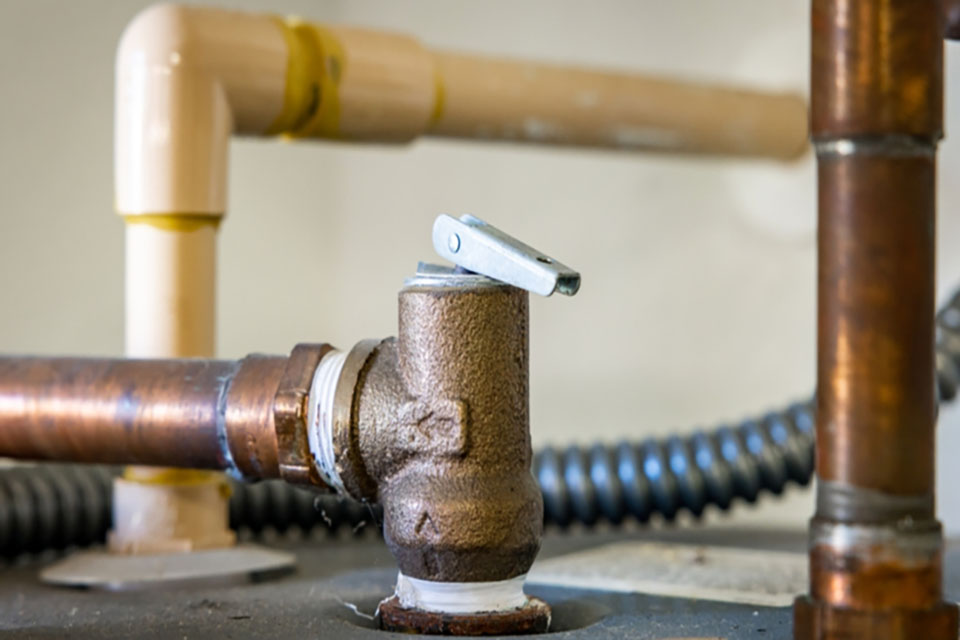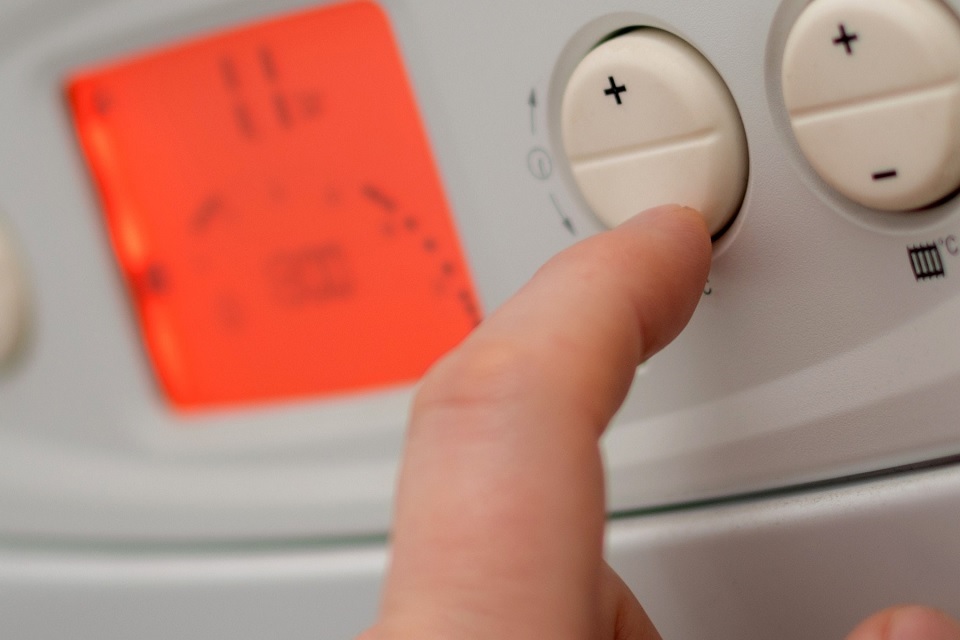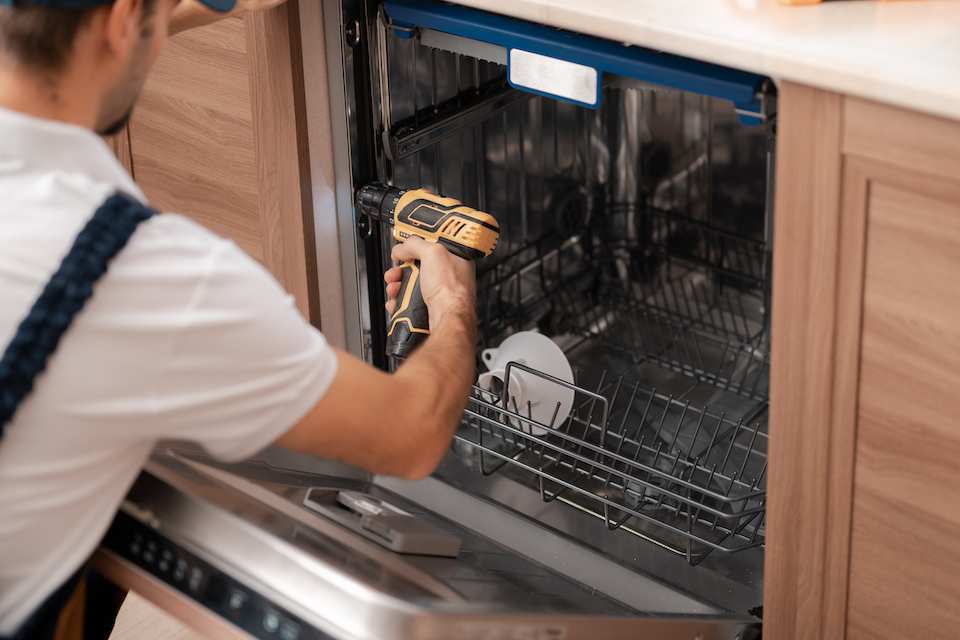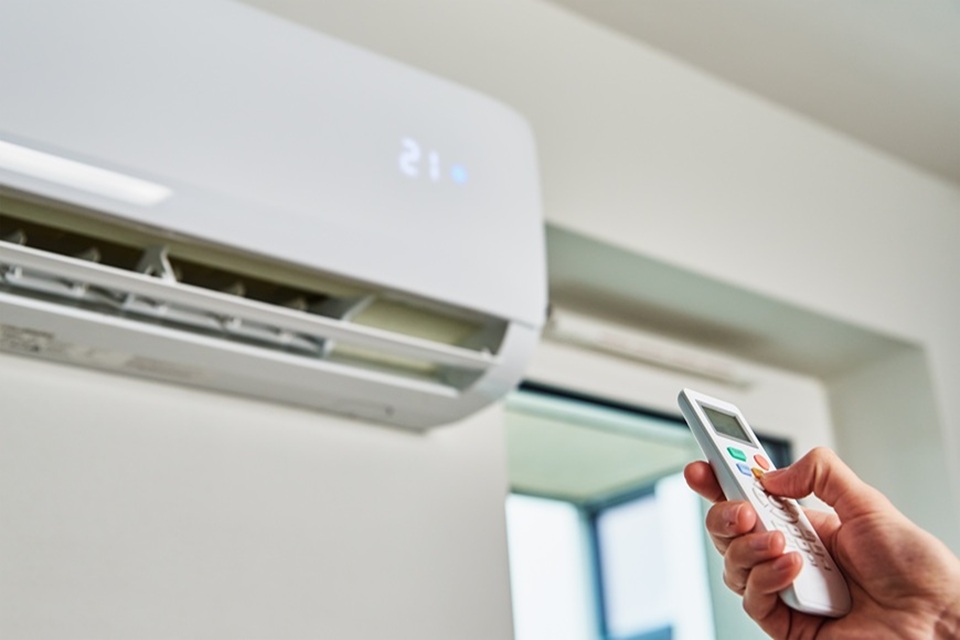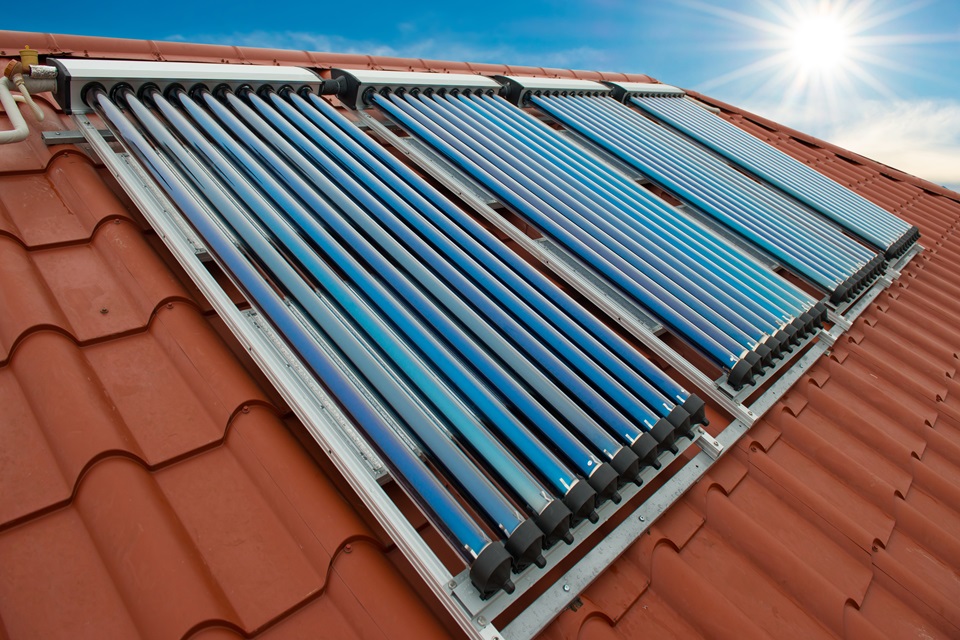How Much Does a Plumber Cost in 2024?
Unfortunately, not all plumbing projects are enjoyable, and every plumbing system is vulnerable to breakage and damage.
Plumbers are much less expensive than the damage caused by leaving a problem unattended.
What is a plumber, exactly?
They're highly-trained specialists who can handle a variety of concerns, including unclogging drains or toilets, repairing damaged fixtures, replacing hazardous water heaters, and repairing leaks.
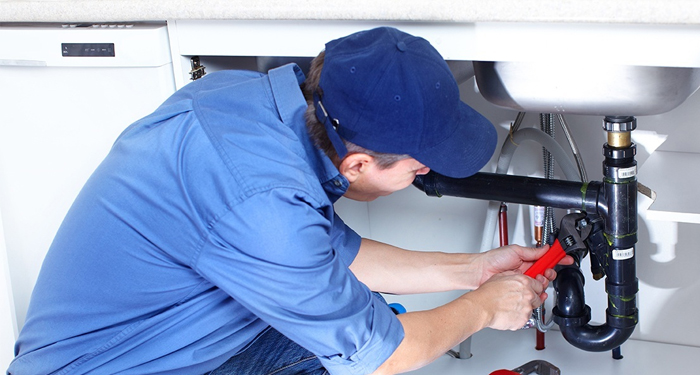
So, what can you expect to learn from this guide?
With this guide on plumbing prices, you can learn about common issues, costs, and critical factors.
To learn more about plumber prices, carry-on reading…
The cost of a plumber varies depending on where you live in the country and the type of service you conduct. The average plumber costs between £40 and £80 per hour, according to our data.
Plumbers' day fees range from £180 to £350 a day, though you should expect to spend 20-30% more per day if the plumber is installing an appliance in your home.
Call-out fees are usually set at twice the typical hourly rate, but they also include the first hours’ worth of labour.
Expect to pay 2.5 to 3 times the typical hourly fee for an emergency plumber calls out.
Don't be afraid to ask...
You should ask your local plumber how much the task will cost, how much their hourly rate is, and how long the job will take. The total cost of a plumber is usually made up of the time spent plus the cost of the parts.
Replacing a typical hot water tank is much more expensive and more consuming than repairing a faulty tap. It also depends on the size and complexity of the plumbing project.
Sinks, toilets, and other plumbing components that are difficult to reach or require disassembly and reassembling later will take longer, increasing the cost.
Most plumbers charge between £20 and £50 per hour. However, the overall cost will vary depending on the scope of the job.
Prices differ based on where you live in the United Kingdom. The cost of living in London and the southeast is often higher than in other areas.
Is there anything else to consider?
Remember that the plumber cost will be determined by travel and transportation, as well as ease of access to your property and any fees or costs associated with parking their vehicle at your residence.
Plumbing Prices in 2024
The following table shows the many types of jobs that a typical customer would expect a plumbing specialist to perform and how much they'll charge you.
| Job | Cost |
|---|---|
| Repairing a tap | £65-£125 |
| Drain cleaning | £100-£150 |
| Toilet replacement | £145-£315 |
| Boiler repair | £80-£400 |
| Slow draining sink | £150-£200 |
| Sewer cleaner | £150-£200 |
| Installing a new shower | £250-£380 |
| Unclogging a toilet | £75-£150 |
| Emergency call-out | £100-£130 |
| Leaking pipe | £100-£200 |
What are the Supply Costs of Plumber Jobs?
Plumbers are typically knowledgeable and skilled with their hands, but they also understand when and how to use the appropriate tools. To provide homeowners with long-lasting plumbing solutions, they must manage a variety of difficulties, health hazards, and cramped, dark locations.
Here we look at just the supply costs of plumber jobs without any labour or additional costs included.
All plumbers need a pipe wrench when it comes to completing a job, this usually costs around £10 - £30, they also need a basin wrench which will cost around £5 - £10, an adjustable wrench usually costs £10 - £30, a faucet key which will cost £2 - £20.
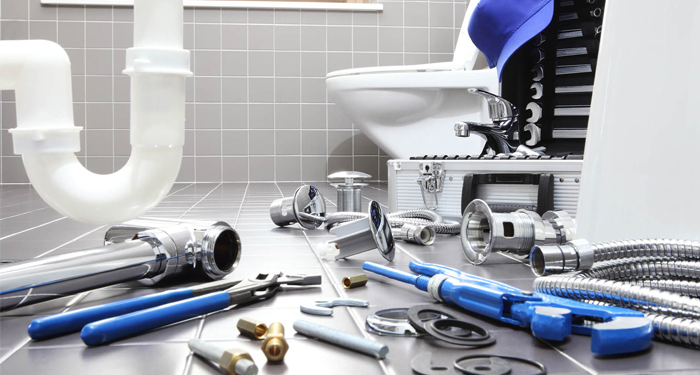
When it comes to pipework, they'll need a hacksaw which will cost £3 - £30, a pipe cutter £3 - £25, thread sealing tape will cost around £0.25 - £2 per roll and pilers cost on average £5 - £15.
A plunger will cost £5 - £35 and a drain cleaner cost £140 - £180.
Plumbers tend to use a PEX expander which is drill-like equipment that extends the pipe's mouth so that a metal fitting can be inserted.
Because PEX piping preserves its original shape, the mouth of the fitting closes in on the fitting, creating a perfect seal for water to pass through. This usually costs around £130 - £160.
Sometimes, people may want to buy plumbing supplies themselves such as baths, toilets, and sinks therefore, they will purchase the supply before the plumber installs it in your home, this can sometimes decrease the total cost.
The average cost for a bathtub is £100 - £400, depending on the type of bath you want in your home will affect the overall cost. The cost of a toilet will also depend on the type of toilet you want as there is a variety of choices, however, the average cost is usually around £100 - £200.
The average cost for a sink is £50 - £200 and a new boiler will usually cost £1,500 - £3,700.
The table below will show the different prices of supply costs for a plumber.
| Supply | Cost |
|---|---|
| Pipe wrench | £10 - £30 |
| Basin wrench | £5 - £10 |
| Adjustable wrench | £10 - £30 |
| Faucet key | £2 - £20 |
| Hacksaw | £3 - £30 |
| Pipe cutter | £3 - £25 |
| Thread sealing tape | £0.25 - £2 |
| Pilers | £5 - £15 |
| Plunger | £5 - £35 |
| Drain cleaner | £140 - £180 |
| PEX expander | £130 - £160 |
| Bathtub | £100 - £400 |
| Toilet | £100 - £200 |
| Sink | £50 - £200 |
| Boiler | £1,500 - £3,700 |
What are the Additional Costs of Plumber Jobs?
It's no surprise that some plumbing jobs are more expensive than others. Installing a new bathroom, for example, is a far more complicated operation than unblocking a toilet, and as a result, your plumbing expenditures will be higher.
Here you will see the additional costs associated with hiring a plumber to execute a work.
Cleaning a Drain
The homeowner is responsible for underground pipes in the garden; utility providers will normally only repair or maintain drains outside of your property limits (unless they are shared).
Both rainwater and sewer pipes can become clogged, necessitating jet flushing to clear the obstruction. Therefore, if there is a problem when installing or fitting something in your home then the plumber will have to find the problem which may lead to having to clear your drains.
Therefore, to clear an outside drain it will cost around £150 - £200.
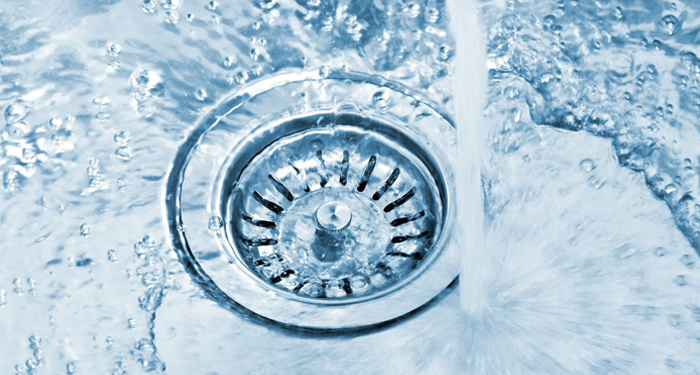
Gutter Clearing
Blockages in the roof gutters or rainwater pipe system can be caused by moss, leaves, twigs, and other debris. Failure to maintain the gutters regularly can result in decaying fascias, moist areas, and mould growth.
The price is usually £4 - £5 per metre of guttering and includes examining and unblocking any rainwater pipes above ground level, if necessary.
A normal semi-detached house should take a couple of hours to complete. If you want it, add time and charges for cleaning the gutters on the outside.
Underfloor Heating
Installing underfloor heating beneath your flooring is one of the most effective ways to heat your bathroom. This will make the floor more comfortable to walk on and ensure that your bathroom is warm when you exit the tub.
Electric underfloor heating, which costs £50 - £60 per square metre, or wet underfloor heating, which costs around £40 - £150 per square metre, are the two options.
Minimum Fee
The more the number of craftsmen, the higher the labour cost. You should also think about the prices of location since some contractors may charge more for remote places to cover their mileage charges.
Expect to spend more in cities like London, where the hourly rate is roughly £50, compared to £25 in Northern England.
Materials Needed
Your plumbing problem will almost certainly require the use of supplies, and unless these materials are inexpensive and plentiful, the plumber will charge you for them.
You may have some input into the materials were chosen – for example, the sort of thermostat or boiler model you require – but the plumber may just choose the best ones for the task.
Type of Job
Some plumbing repair is straightforward, and your plumber will most likely be familiar with how to handle the issue. An overflowing/overfilling toilet, for example, may be caused by only a few causes, and once each of them has been explored, the problem may be fixed.
A more complicated problem will not only necessitate the services of a more professional plumber, but it will also take longer to evaluate and repair, resulting in higher costs.
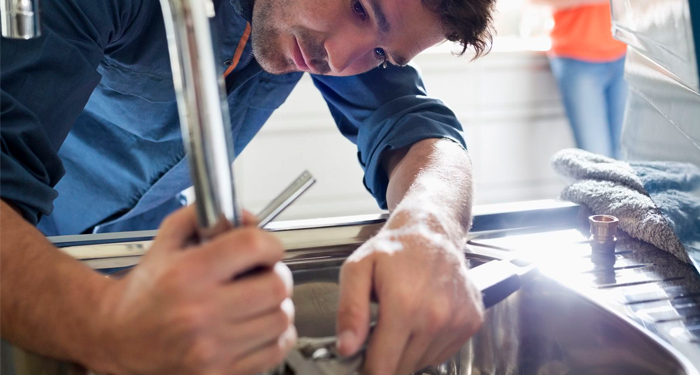
Size of Job
A complete flood vs. a trickling tap may appear to be evident at first glance, but any problem that emerges could be a symptom of a greater problem lurking in the piping. Similarly, unless you're knowledgeable about plumbing, estimating the intricacy of a task will be tough.
However, whether it's a more skilled plumber or a longer time to perform the task, the overall cost will be higher.
Tradesmen Costs for Plumber Jobs
For projects that will take more than a few hours to accomplish, tradesmen usually charge a day rate. Look at the pricing guide below for help calculating the cost of hiring a tradesperson, which includes plumbers' day rates, hourly rates, and what they charge for various jobs.
For simpler jobs like installing a new toilet or fixing pipes, plumbers typically charge roughly £40 - £60 per hour. For those working for a reputable organisation, the typical gas safe engineer hourly rate can be as high as £60 - £80 per hour, whereas self-employed plumbers may only charge £30 - £60 per hour.
A day rate, if a plumber knows they'll be working on a job for the entire day, may have a fixed fee that's less than an hourly charge. A typical day charge will be between £180 - £350.
Larger, more established companies often charge more than tiny sole traders, although they may have standard pricing for specific projects that will show you the whole cost before you hire them.
A plumber's average annual income is roughly £32,000 - £35,000, however newly qualified plumbers may only earn £28,000, while those with more than five years of experience in the field can earn £36,000 - £40,000.
Nobody likes to be in the middle of an emergency, yet they do happen. You will pay a premium to hire a plumber if you have an emergency, such as a leak or a burst pipe, that requires quick treatment and occurs outside of normal working hours, such as overnight, on the weekend, or during a holiday.
Emergency callouts can cost up to twice as much as standard hourly rates, ranging from £100 to £130 across the UK and up to £200 to £250 in London.
Different jobs have an average price, for example, toilet repair is usually less expensive. Depending on the issue, a simple cistern repair could take less than an hour and cost roughly £50 - £100, while more complicated issues could take longer and cost £100 - £150 to have it installed only without supply or additional costs.
Replacing a sink is work that is similar in scope to replacing a toilet, and it will cost roughly the same - around £100 to £250, with the latter being slightly less expensive.
The type of tap determines whether it needs to be replaced or repaired. A tiny leak should be fixed for a low amount, however, replacing a set of mixer taps could take a few hours and cost between £150 and £300.
Please refer to our guide on tradesmen costs, for further information.
How Long Do Plumber Jobs Take?
The type of job the plumber must complete does affect the timescale of the job as some jobs are more complicated and take up more time than others. Here we will break down the different timescales of plumbing jobs and break them down in a table.
Blocked Toilet
You have a blocked toilet if it doesn't flush, the water doesn't drain, water gurgles in your shower/bath drain (especially when using water-based appliances like washing machines), or liquids come out of the sewage clean-up outside your home.
Many of these problems can be avoided simply by being cautious about what you flush — placing a bin next to the toilet may serve as a good reminder to throw things in the trash rather than down the toilet.
If you need to contact an emergency plumber to fix a blocked toilet, it will most likely take 1 to 2 hours to finish.
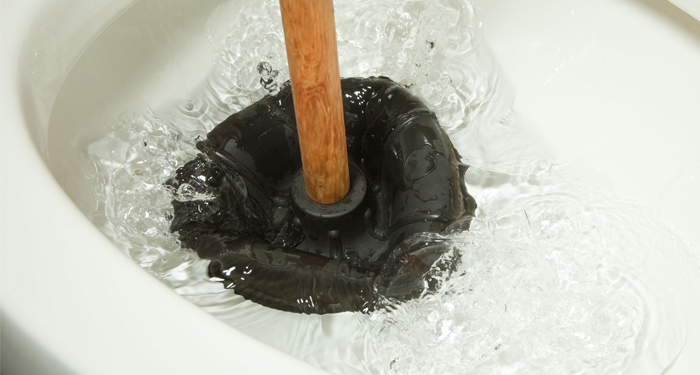
Blocked Sink
A blocked sink, like a clogged toilet, usually arises when something that shouldn't have gone down has. Hair and small things (hair bobbles, rings, cotton buds, etc.) are common in restrooms, while grease, oil, and bits of food are common in kitchens.
Unblocking a sink, like unblocking a toilet, should take 30 minutes – 1 hour and require no additional materials.
Toilet Replacement
If your toilet is regularly blocked, has cracks in the porcelain, requires a lot of repairs, is very old, wobbles, doesn't flush smoothly, or has a huge build-up of mineral deposits, you should consider replacing it.
There isn't much that can be done about it. Depending on experience and the type of toilet, replacing a toilet can take anywhere from 1 to 4 hours.
Sink Replacement
It's probably time to repair any taps in your home that are rusting, broken, leaky, unsteady, discoloured, covered with limescale, or have loose pieces.
Except for removing any limescale build-ups and tightening up loose parts, when possible, there isn't much you can do to prevent most of these wear and tear issues. It should just take 1 to 3 hours to replace the taps.
Leaking Radiator
The leak in your radiator could be caused by an underlying problem with your central heating system, resulting in corrosion within the radiator.
The leaking could be caused by loose parts or worn-out components that need to be replaced. In either case, the required parts will need to be repaired or replaced.
A plumber should be able to operate in 1 to 3 hours if the leak is very simple to repair.
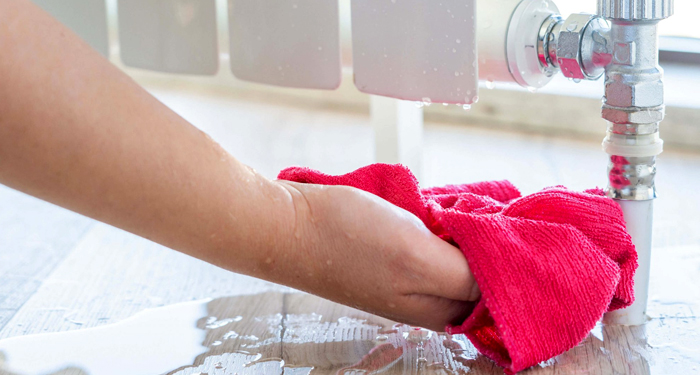
Radiator Replacement
Rusting, corrosion, inefficiency, leakage, damage, and worn-out components are all reasons to replace a radiator. There's not much a homeowner can do to prevent their radiators from breaking or needing to be replaced.
In between 1 and 3 hours, a competent plumber should be able to replace or install a radiator.
Boiler Replacement
A broken hot water tank will cause some evident difficulties in your home, indicating that it needs to be repaired or replaced. To keep your hot water tank in good working order, you should partially drain it regularly to eliminate any accumulated debris or silt.
A plumber would most likely need a whole day to replace your hot water tank with a similar one.
The table below will show the different timescales of the different jobs mentioned above and more.
| Job | Timescale |
|---|---|
| Blocked toilet | 1 – 2 hours |
| Blocked sink | 30 minutes – 1 hour |
| Toilet replacement | 1 – 3 hours |
| Sink replacement | 1 – 3 hours |
| Leaking radiator | 1 – 3 hours |
| Radiator replacement | 1 – 3 hours |
| Boiler replacement | 1 day |
Types of Plumber Jobs
When it comes to being a plumber, there are a lot of jobs included in this role. In this section of the article, we will break down the different types of plumber jobs and the average cost included.
Power Flushing
A power flush is a boiler cleaning procedure that eliminates any filth, sludge, rust, or debris that has formed over time in your system.
If these compounds are allowed to remain in your heating system, they may cause blockages or corrosion, lowering the effectiveness of your boiler and possibly leading to a failure.
A chemical is circulated at high pressure through your radiators, pipes, and boiler using a specialised machine. This removes any potentially obstructive residues, allowing water to smoothly flow throughout your system.
If you live in a two-bedroom house, the cost of having your central heating system power flushed will be roughly £385 to £425; if you live in a three-bedroom house, the cost will be £475 to £535; and if you live in a four-bedroom house, the cost will be £510 to £590.
The cost of power flushing is determined by the size of the house, the number of radiators, the type of central heating, the number of heating engineers employed, the convenience of access, and the location of the property.
A two-bedroom house should take 3-4 hours to clean, a three-bedroom house should take 5-6 hours to clean, and a four-bedroom house should take a full working day to clean.
The length of time it takes to complete the project will be determined by factors such as ease of access, the number of tradespeople hired, and the type of central heating system installed.
Please refer to our guide on power flushing, for further information.
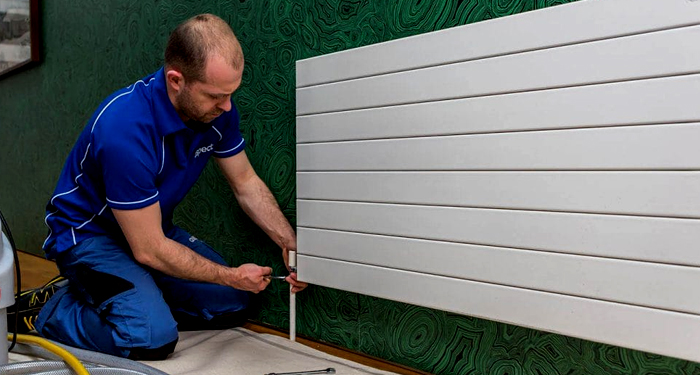
Installing a Radiator
Radiators are necessary for modern homes because they distribute the heat generated by the boiler throughout the house. They may need to be replaced if they cease to function.
Buying a new radiator and having it fitted by a professional should cost between £110 and £470.
Installing a new radiator will cost you between £30 and £70 per hour, with a day rate of around £240 to £320.
However, your location in the UK will have a considerable impact on this. This means that a professional installation of an average-sized radiator should cost between £90 and £150.
Installing a new radiator in your home often takes 1 to 2 hours, depending on the size of the radiator (small, medium, or large). While installing a new horizontal radiator can take up to two hours, it is usually faster than installing other radiator designs.
Please refer to our guide on the costs of installing a radiator, for further information.
Installing a Bath
A plumber installing a bath will oversee and performing all tasks related to bathroom installation and fitting. Typical responsibilities include removing old units and measuring for new ones.
They may also be expected to work around existing elements such as buried pipelines and units, as well as follow blueprints set up by design teams.
Bath installation costs range from £240 to £4650 on average. The total cost of installing a bath is determined by the style of bath you select, the size of the bathtub, convenience of access, and the number of tradesmen necessary.
When having a new bath done, one of the most important factors to consider is labour costs. Plumbers normally charge between £30 and £50 per hour to install a new bath, and bathtub installations typically require two craftsmen, double the labour cost.
It will cost between £250 and £350 to have your old bath was torn out, which covers removing and disposing of the old bath as well as installing the new one.
If you choose a spa bath, an electrician may be required because it requires electric controls. Electricians often charge between £25 and £50 per hour.
A typical bath installation takes between two and four hours to complete. This will, however, differ depending on the style of bath you select, as some are easier to install than others.
If you're installing a bath in a brand-new bathroom, you'll want to factor in the time it takes to prepare the space, especially if the bath is inset or recessed.
Digging out and constructing a place to fit the bath will take more time. If any pipes need to be moved or electrics need to be wired in, the process may take a little longer, but it shouldn't take more than one day.
Please refer to our guide on the costs of installing a bath, for further information.
Boiler Installation
Any competent plumber will make every effort to make the installation as straightforward as possible.
They should protect your carpets and surfaces, arrive with all necessary materials, work efficiently and safely, follow all applicable laws, and leave no evidence of their stay.
The cost of installing a new boiler is determined by the type of boiler you select. A new combi boiler, for example, costs between £1500 and £3500, whereas a conventional boiler costs between £1300 and £3700.
The cost of a new boiler is also determined by the length of time it takes to install it, as tradespeople typically charge a daily or hourly rate, though this varies depending on the project.
Regular and combi boilers are typically installed in one to one and a half days, whereas system boilers can take up to two and a half days.
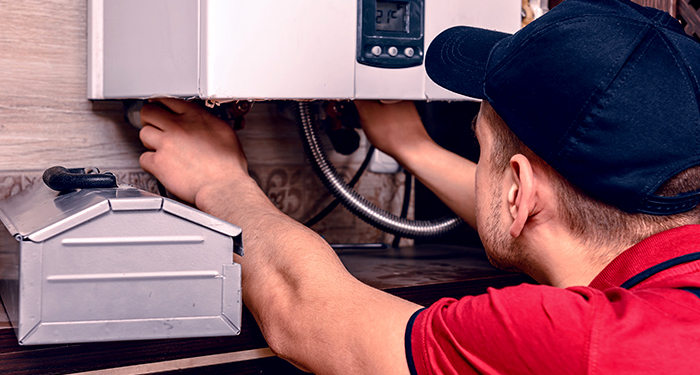
Sink Replacement
Replacing a kitchen sink is a simple but time-consuming procedure. Sinks come in a variety of shapes, sizes, and materials, with some being more difficult to deal with than others.
The cost of replacing a kitchen sink basin varies depending on the type of sink you choose; stainless steel sinks cost between £100 and £850, while granite composite sinks cost between £190 and £720.
Fireclay sinks range in price from £210 to £1240, ceramic sinks from £300 to £880 , copper sinks from £340 to £1340, and cast-iron sinks from £450 to £1840.
The total cost of installing a kitchen sink is determined by several factors, including the sink's size, which is typically one, one and a half, or two bowls.
A standard plumber would charge between £75 and £150 to replace a kitchen sink in 3 to 4 hours, depending on how difficult the sink is to install and whether any cutting of plumbing is required.
If you want your sink relocated, you may have to pay an extra labour charge because it can take anywhere from one to two days to accomplish or up to eight days for a kitchen island relocation.
FAQs
Q: What does a plumber do?
A: Plumbers install and repair pipelines that deliver water and gas to houses and businesses, as well as transport trash away from them.
They also install appliances like dishwashers and washing machines, as well as plumbing fixtures such as bathtubs, sinks, and toilets. Apprentice plumbers are trained and supervised by experienced plumbers. They work alongside other labourers in the building industry.
Q: What insurance does a plumber need?
A: As a plumbing contractor, you must ensure that you have enough public liability insurance to protect yourself if you cause damage or harm while doing your duties.
Any subcontractors you engage should be protected by your policy if they work under your supervision if you have the correct coverage in place.
Q: Does a plumber need to install a toilet?
A: A toilet can theoretically be replaced by anyone. However, the UK Building Regulations apply to a new toilet in a room that was not previously a toilet or bathroom.
All fixtures, fittings, and connections to the sewage system must be checked by the Building Inspector or installed by a qualified plumber. The Water Supply (Water Fittings) Regulations 1999 also require that all mains water connections, fixtures, fittings, and appliances meet the standards.
As a result, hiring a plumber rather than attempting to do it yourself is a wise option.
Q: Why do you pay extra for an emergency call out?
A: A typical plumber will have a set of hours that they work during the week. Your plumber's other responsibilities and plans will have been made to fit around these hours.
An emergency plumber, on the other hand, does not have this agreement and can be summoned at any time.
So, the callout fee is partly to compensate for the inconvenience of interrupting your plumber's day, as well as to allow them to make any necessary arrangements.
The second reason for a callout fee is to cover travel expenses, as your plumber may have to travel a long distance to reach you. He'll be able to reclaim some of that gas money, as well as the cost of travel time, thanks to the callout fee.
Q: Is a leaking boiler an emergency?
A: It's not normally considered an emergency if your boiler is dripping water. Water damage, on the other hand, can make your appliance irreparable.
If your boiler is leaking gas, it is always considered an emergency and should be repaired as quickly as possible.

